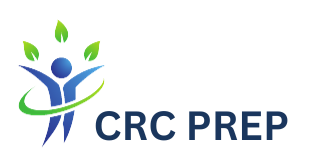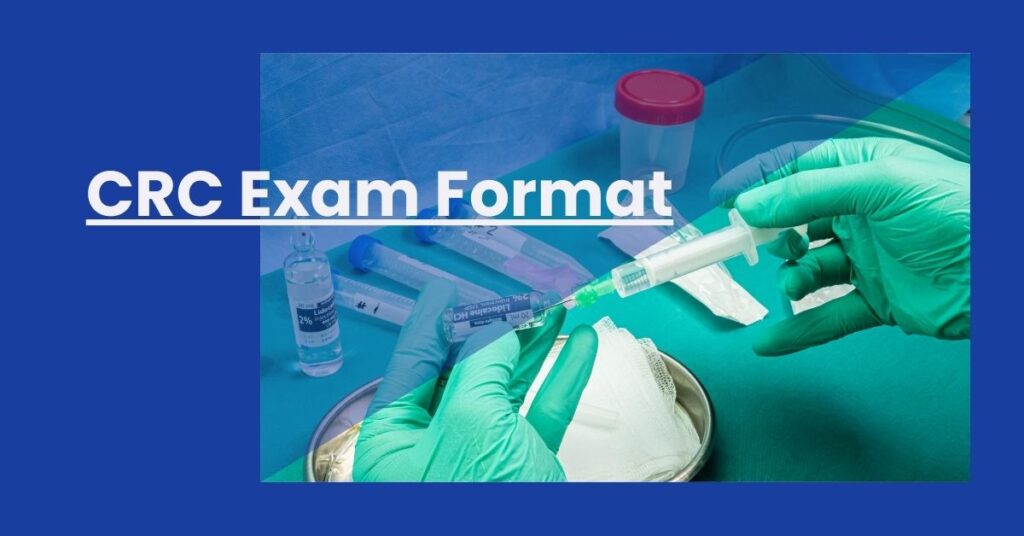Grasping the CRC exam format is crucial for aspiring rehabilitation counselors.
- Key Components of CRC Exam Format: Understand the exam’s structure, question types, and scoring system.
- Preparation for CRC Exam Format: Identify study materials and strategies to tackle the exam’s challenges.
- Exam Day Insights on CRC Exam Format: Learn what to expect and how to navigate exam day procedures stress-free.
Solid knowledge of the CRC exam format paves the way to certification success.
- Overview of the CRC Exam
- CRC Exam Eligibility Requirements
- Detailed Breakdown of the CRC Exam
- Registration Process for the CRC Exam
- Preparation Tips for the CRC Exam
- Exam Day Procedures and Requirements
- Live Remote Proctoring vs. Testing Center Options
- Scoring Methodology of the CRC Exam
- How to Interpret and Use CRC Exam Results
- Strategies for Success on the CRC Exam
- Conclusion
Overview of the CRC Exam
The Certified Rehabilitation Counselor (CRC) examination is a gateway designed to validate the expertise and knowledge of professionals in the field of rehabilitation counseling. Successfully conquering this comprehensive assessment not only enhances your credibility but also marks you as a specialist committed to the highest standards of ethical and quality practice. By understanding the crc exam format, you’re taking the first crucial step towards achieving this distinguished certification.
What Is the CRC Exam?
The CRC exam is a testament to your understanding of the principles and practices of rehabilitation counseling. It covers a wide array of topics that are essential for effectively helping individuals with disabilities achieve their personal, career, and independent living goals.
Why Is the CRC Exam Important?
Becoming a Certified Rehabilitation Counselor means you’ve met stringent academic and professional requirements. It’s a clear indication of your dedication and sets you apart in the field, reassuring clients and employers alike of your professional competence.
CRC Exam Eligibility Requirements
Embarking on the journey to earning your CRC certification begins with meeting specific eligibility criteria. If you’re looking to take the leap, familiarize yourself with the essentials that pave the way to sitting for the exam:
- Educational Background: A cornerstone requirement, your academic credentials need to align with standards set by the CRCC.
- Work Experience: Your practical expertise in rehabilitation counseling is just as critical as your academic history.
- Ethical Compliance: Adherence to professional ethics is non-negotiable, ensuring that your practice is beyond reproach.
Evaluating your eligibility should be your first action item. Once you’ve affirmed that you meet these benchmarks, the path to certification is clear for your taking.
Detailed Breakdown of the CRC Exam
Once you’ve met the eligibility requirements, immersing yourself in the crc exam format is the next crucial step. Understanding the structure is pivotal to devising a strategy that can help you navigate the exam successfully.
Exam Components
The CRC exam consists of questions that revolve around key knowledge areas essential to rehabilitation counseling. With the crc exam format designed to challenge and assess your readiness, grasp the following elements:
- Foundational Knowledge: Here, your understanding of counseling theories, medical and psychological aspects of disabilities, and the rehabilitation process is tested.
- Counseling Skills: This component evaluates your proficiency in the practical application of counseling techniques.
- Community Engagement: Your adeptness at navigating and facilitating community resources for clients is under the lens.
Anticipating the types of questions you’ll encounter not only sharpens your focus but also aids in building a robust study plan.
Registration Process for the CRC Exam
Registering for the CRC exam requires a systematic approach. Here’s your step-by-step roadmap to ensure that your exam registration is seamless and error-free:
- Gather Your Documentation: Ensure all your academic and professional records are up-to-date and accessible.
- Complete the Application: Visit the CRCC website and navigate through the application process with precision.
- Pay the Required Fees: Secure your spot by paying the examination fees, bearing in mind the deadline to avoid any last-minute rush.
Once you’ve crossed these milestones, a sense of accomplishment sets in as the date of your CRC exam inches closer.
Preparation Tips for the CRC Exam
Nailing the CRC exam demands a robust preparation strategy. Fortify your approach with tried-and-true tactics:
- Self-Assessment: Gauge your current knowledge and identify areas that require extra attention.
- Study Schedule: Plan your study time meticulously, laying out a schedule that aligns with your lifestyle and keeps burnout at bay.
- Relevant Study Materials: Equip yourself with materials that comprehensively cover the CRC exam scope, such as the preparation planner and resources provided by the CRCC.
- Practice Tests: Simulate exam conditions by taking practice tests that mirror the actual exam format, helping to bolster your confidence and time management abilities.
Each of these steps plays a crucial role in building not just an academic understanding, but also in instilling the confidence needed to tackle the CRC exam with tenacity and composure.
Exam Day Procedures and Requirements
Facing the CRC exam can be daunting, but with a clear understanding of what to expect on the actual day, you can approach it with confidence. To help ensure a smooth experience, it’s vital to familiarize yourself with the exam day procedures and requirements laid out by the CRCC.
Before You Arrive
- ID Verification: Pack a government-issued photo ID that matches the name you used during registration.
- Confirmation Letter: Have a copy of your exam confirmation, which also details your test center location and time.
- Exam Policies: Review the CRCC’s exam policies to ensure you adhere to all the guidelines, from what to bring to the behaviors expected of you.
At the Testing Center
- Arrive Early: Give yourself ample time to deal with unexpected delays and to relax before the start of the exam.
- Security Check: Be prepared for a security check, which may include metal detector scans and inspection of personal items.
- Storage of Belongings: You’ll be assigned a locker to store your belongings, as most items are not allowed in the testing room.
Familiarize yourself with these steps to mitigate stress and focus your energy entirely on the exam.
Live Remote Proctoring vs. Testing Center Options
In adapting to evolving circumstances and various learning preferences, the CRC exam offers you the choice between live remote proctoring and traditional testing center environments.
Live Remote Proctoring
Under this crc exam format, you have the flexibility of taking the exam from a location of your choice, which can help alleviate some of the anxiety of testing in an unfamiliar environment.
- Preparation: Ensure you have a compatible computer, a stable internet connection, and a private, well-lit space free from disruptions.
- Surveillance: Expect to be monitored by a proctor via webcam, microphone, and access to your screen to ensure the integrity of the exam.
Testing Center Experience
For those who prefer a more structured atmosphere or lack the necessary home setup, testing centers provide a controlled environment.
- Professional Setting: You’ll be seated in a distraction-free zone, specifically designed for testing.
- On-site Assistance: Immediate help is available if you encounter any issues during your exam.
Weigh the pros and cons of each option carefully to choose a setting in which you believe you will perform best on the CRC exam.
Scoring Methodology of the CRC Exam
Crafting your study plan with insight into the scoring methodology can sharpen your focus on achieving not just a pass, but an excellent score in each required domain.
Understanding the Scores
- Passing Threshold: Know the criteria defining the passing score, which follows the CRCC’s role delineation study.
- Score Reporting: You will receive provisional scores right after your exam, followed by official results which are mailed after the scoring process is concluded.
Having clarity about what constitutes a passing mark enables you to set realistic goals and benchmarks during your preparation.
How to Interpret and Use CRC Exam Results
Your CRC exam results are a wealth of information beyond a mere pass or fail declaration. By decoding your score report, you can identify strengths and areas that need further refinement.
Ejaculating Your Performance
- Diagnostic Feedback: If your performance did not meet the passing standard, the report offers detailed insights to guide your studies for a retake.
- Post-Exam Steps: After passing, use the success as a springboard to continually enhance your professional skills and look for opportunities to apply your expertise.
With a strong grasp of your results, you can craft a path forward that leverages your success or transforms setbacks into future achievements.
Strategies for Success on the CRC Exam
Performing successfully on the CRC exam requires not just an understanding of the content but also strategies that harness your potential fully.
Exam Techniques
Below are key techniques that can give you an edge:
- Time Management: Practice pacing yourself to ensure you can respond to all questions within the allocated time.
- Question Analysis: Hone your skills in analyzing question stems and options, which allows for more precise answers.
- Stress Relief: Learn calming techniques to maintain composure under pressure, enhancing your cognitive functions.
Applying these tools consistently can elevate your test-taking abilities and significantly improve your chances of success.
Conclusion
Mastering the crc exam format is about understanding the nuances of the exam structure, strategizing your study plan, and knowing what to expect on exam day. By dissecting each component of the CRC Exam Format, from the testing environment choices to score interpretation, you are equipping yourself with the essential tools for success. Embrace the process, let your dedication shine through, and step confidently toward the distinguished goal of becoming a Certified Rehabilitation Counselor.
Explore the CRC Exam format comprehensively with our in-depth guide on structure, questions, and preparation strategies for success.

